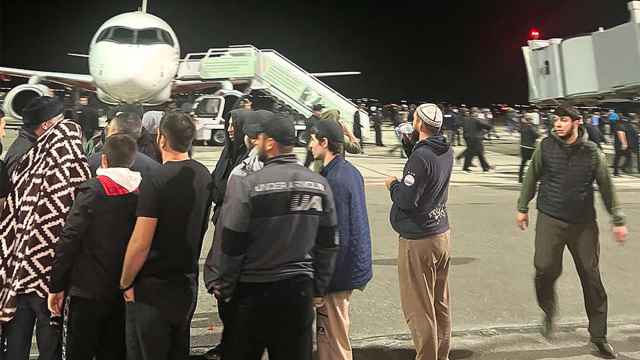Militants from Chechnya and other restive regions in the volatile North Caucasus have targeted Moscow and other areas with bombings and hostage-takings, but the allegations of involvement in the Boston Marathon explosions would mark the first time they had conducted a terror attack in the U.S.
The conflict in Chechnya began in 1994 as a separatist war, but quickly morphed into an Islamic insurgency whose adepts vow to carve out an independent Islamic state in the Caucasus.
Russian troops withdrew from Chechnya in 1996 after the first Chechen war, leaving it de-facto independent and largely lawless, but then rolled back three years later following apartment building explosions in Moscow and other cities blamed on the rebels.
Chechnya has stabilized under the steely grip of Kremlin-backed local strongman Ramzan Kadyrov, a former rebel whose forces were accused of massive rights abuses. But the Islamic insurgency has spread to neighboring provinces, with Dagestan, sandwiched between Chechnya and the Caspian Sea, becoming the epicenter of violence with militants launching daily attacks against police and other authorities.
Militants from Chechnya and neighboring provinces have launched a long series of terror attacks in Russia, including a 2002 hostage-taking raid in Moscow's theater, in which 129 hostages died, a 2004 hostage-taking in a school in the southern city of Beslan that killed more than 330 people, and numerous bombings in Moscow and other cities.
In recent years, however, militants in Chechnya, Dagestan and other neighboring provinces have largely refrained from attacks outside the Caucasus.
The allegations of the Caucasus men's role in the Boston's explosions would reinforce long-held claims by Russian officials that insurgents in the Caucasus have been linked to al-Qaida.
A Message from The Moscow Times:
Dear readers,
We are facing unprecedented challenges. Russia's Prosecutor General's Office has designated The Moscow Times as an "undesirable" organization, criminalizing our work and putting our staff at risk of prosecution. This follows our earlier unjust labeling as a "foreign agent."
These actions are direct attempts to silence independent journalism in Russia. The authorities claim our work "discredits the decisions of the Russian leadership." We see things differently: we strive to provide accurate, unbiased reporting on Russia.
We, the journalists of The Moscow Times, refuse to be silenced. But to continue our work, we need your help.
Your support, no matter how small, makes a world of difference. If you can, please support us monthly starting from just $2. It's quick to set up, and every contribution makes a significant impact.
By supporting The Moscow Times, you're defending open, independent journalism in the face of repression. Thank you for standing with us.
Remind me later.





